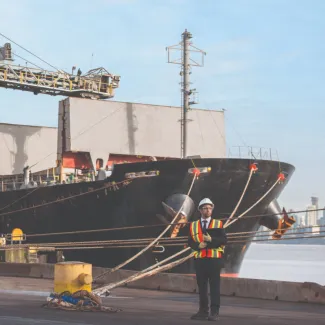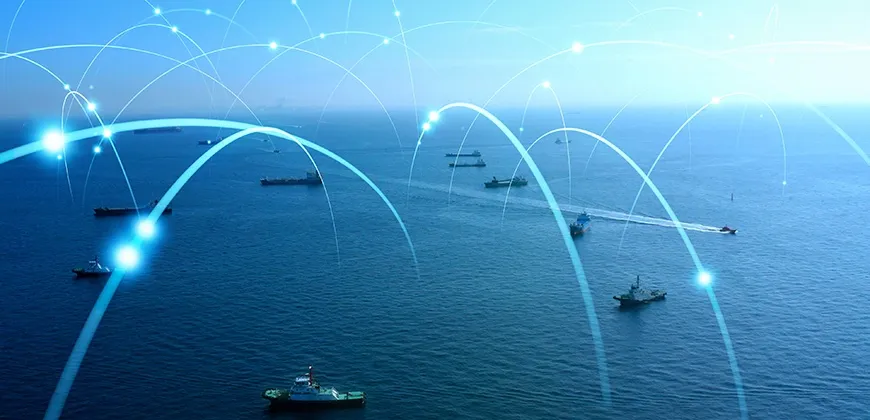Using machine learning to improve vessel fuel efficiency
Instructor's Reflection
Under the guidance of visiting professor Fredrik Ahlgren, two students from the Master of Engineering Leadership in Naval Architecture and Marine Engineering worked on a project for BC Ferries to develop a machine learning model that can predict vessel fuel consumption.

“If you are a naval architect or marine engineer, you likely aren’t going to need to be the data analytics expert, but you still need to know how to work with data and how to use data to work for you,” says Ahlgren.
“I think everyone should know some basics about data analytics, which is why I incorporated this topic into one of my NAME courses.”
Ahlgren introduced his class to several statistical and data analytics tools, and a few students were keen to gain more proficiency in this area. A collaboration with BC Ferries enabled them to access eight months of data from the Queen of Oak Bay, a ferry that travels between the Lower Mainland and Vancouver Island, to get hands-on experience in understanding how machine learning can be used to optimize operational efficiency.
“BC Ferries had already made many operational changes to ensure this particular ferry was as fuel efficient as possible,” says Ahlgren.
“They wanted to take the next step and see if they could use the data they collect to identify further options for improving fuel efficiency.”
Students Janica Echavez and Abhijit Kulkarni initially focused on creating a digital twin of the ferry using the vast amounts of data collected from the vessel’s TT-Sense instruments. This enabled them to identify fuel consumption trends based on the vessel’s operation and environmental conditions, such as wind and wave speed.
Their project investigated three key questions:
· What is the best time for operators to switch between sailing and maneuvering modes?
· What are the best practices to arrive at lower fuel consumption?
· Is it possible to predict fuel consumption at various locations with known parameters?
Answering these questions required the two students to gain new skills in data handling and analysis to find patterns in the millions of data points collected by the ferry over the previous eight months.
They used Python data visualization tools to understand correlations between multiple interconnected variables – from the vessel’s speed through the water to its propeller pitch, propeller shaft speed, and other parameters.
Ahlgren advised Echavez and Kulkarni as they then developed a machine learning model to identify best practices for fuel savings, taking into account key variables such as distance, wind data and vessel operational mode. The students also provided direction in their final report for how this tool could be further enhanced to allow ferry operators to determine optimized routing to save fuel.
“Keep in mind that Janica and Abhijit hadn’t worked in this field before,” says Ahlgren. “Yet they were able to use machine learning to create an interactive fuel decision tool that exceeded my expectations and offered real value to BC Ferries. It’s exciting to know that students in this program have the skills to train machine learning models to make ships more efficient.”
The MEL programs bring in renowned experts as visiting lecturers and adjunct faculty. In 2020, Fredrik Ahlgren joined the NAME team for a 12-month position that included teaching a course on special topics in marine engineering. Dr. Ahlgren has extensive operational experience, having worked as an engineering officer with the Royal Swedish Navy before completing a PhD on ship energy efficiency. He is a senior lecturer in the department of computer science at Linnaeus University and his current research interests focuses on energy efficiency, applied machine learning and the Internet of Things.



